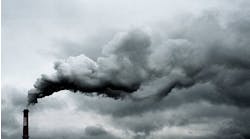Refinery system safety relies on creating and maintaining leak-tight performance and an educated, engaged and empowered team, according to an article from Swagelok field engineer, Ken Backus. Because refinery gases are highly volatile, Backus says, it’s critically important that they stay within the system and not leak out into the plant or surrounding environment.
Most leaks are not the result of a faulty part but rather poor system design or human error, according to Backus, who notes these trouble spots most often identified by Swagelok field engineers: tube support, tube routing and bending, improper tube fitting assembly, tubing materials and product intermixing. Companies that deal with hazardous process gases should work to establish a culture where employees are armed with the right knowledge, engaged with the company’s safety protocols and empowered to speak up if they see a dangerous situation.
Read the entire article here.
